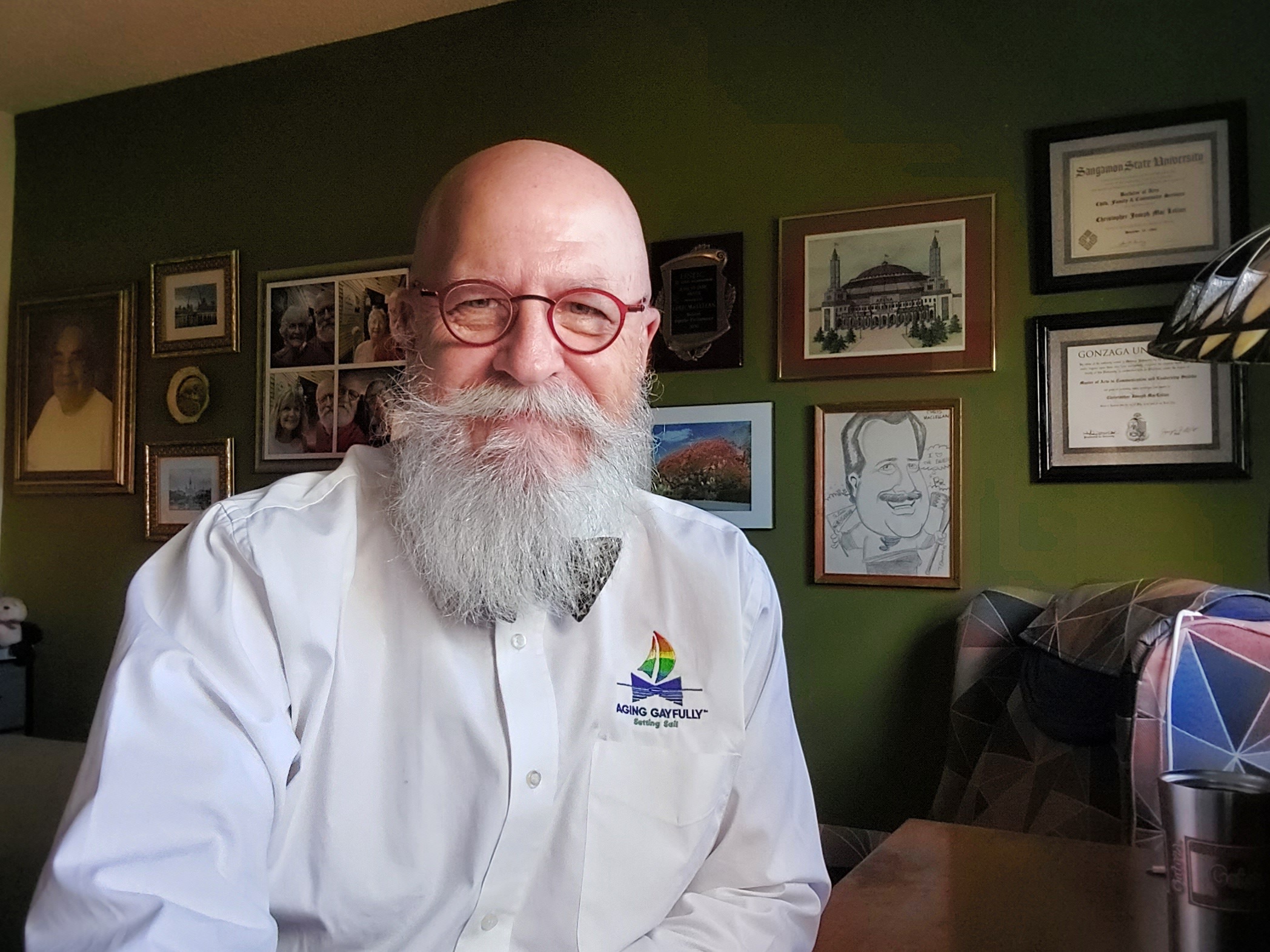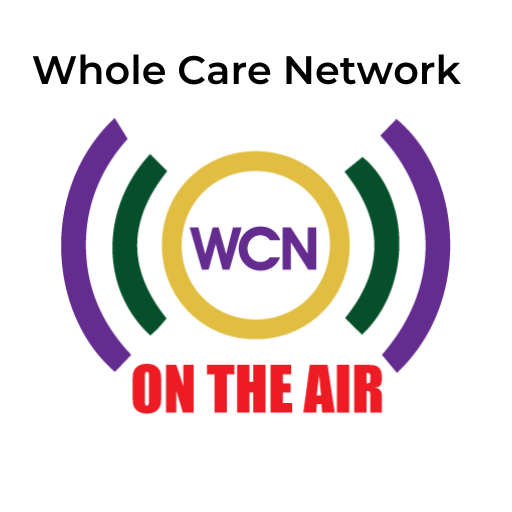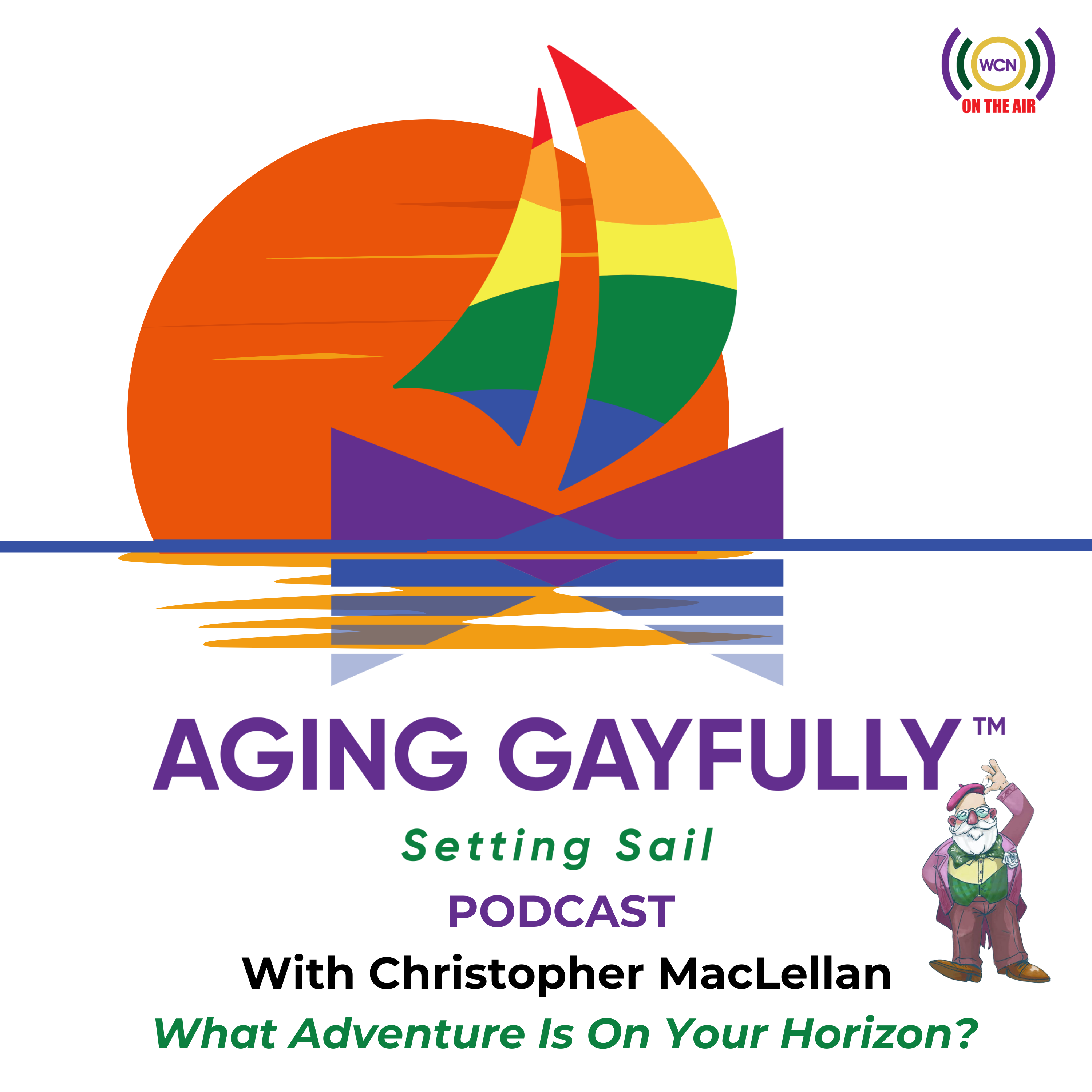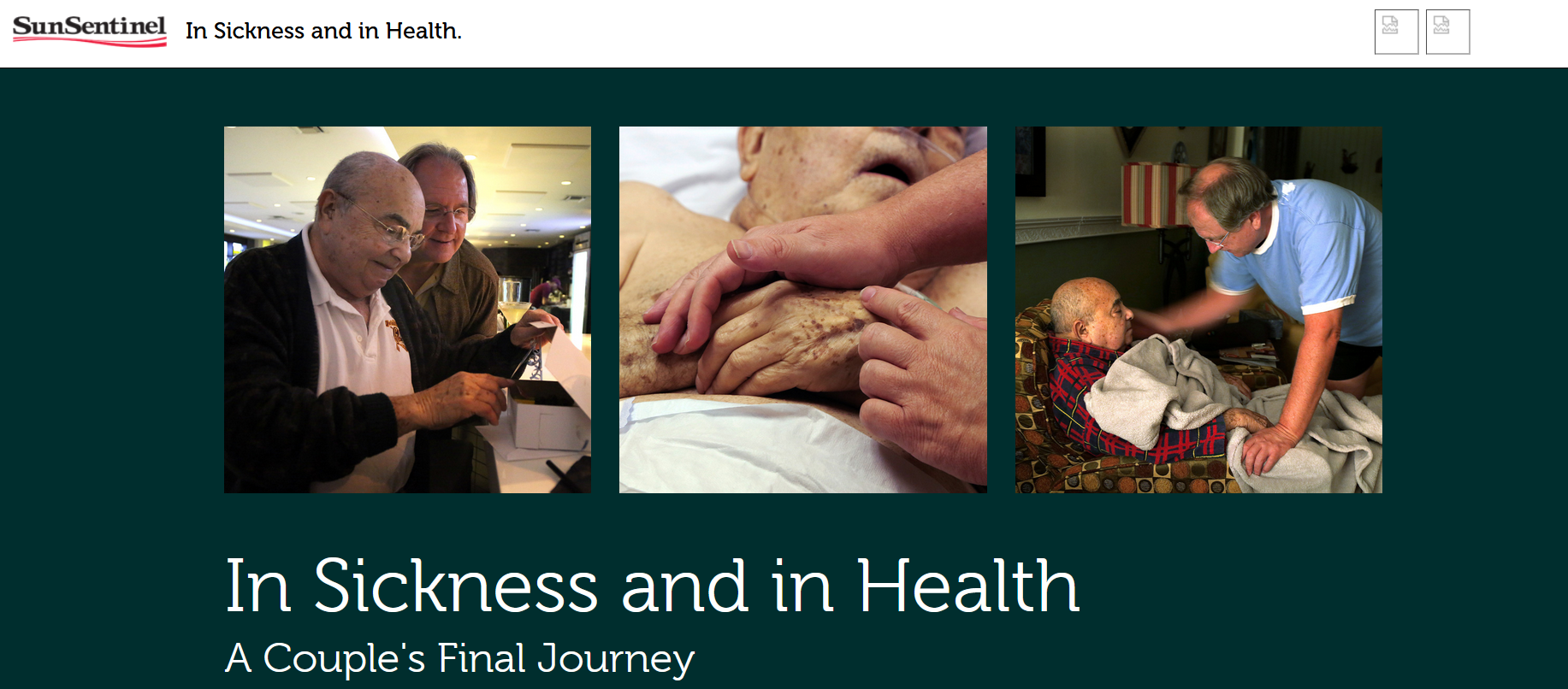Men assuming roles as caregivers need special support!
Do you ever get used to changing the diaper of the woman who once diapered your babies? How do you deal with not knowing how to cook a simple meal when you used to be a company CEO? What should you say when your wife, afflicted by Alzheimer’s disease, asks you to have sex every time you visit her in the nursing home?
Like anyone tending to a family member with a debilitating medical condition, male caregivers face hard challenges. But experts are beginning to recognize men may face those challenges in different ways than women and require different kinds of help.
“There are some men who are going to feel uncomfortable talking about their issues in mixed [company],” said Dale Bruhn, 88, of Delray Beach, who runs the men-only support group offered by the Alzheimer’s Association Southeast Florida Chapter.
Bruhn knows about the walls men put up from personal experience. He began suffering mock heart attacks from the stress of caring for his wife at home for seven years; she was diagnosed with Alzheimer’s when she was only 60. He kept insisting he was fine, a trait shared by many male caregivers, Bruhn said, raised to believe that boys don’t cry.
Finally when his wife’s nurse browbeat him into joining a support group, Bruhn was surprised he was able to share his pain and fear — in part because, by chance, the group was predominantly men.
“Women are not afraid to talk or express their opinions, and that can be frightening to men who are new to Caregiving. Sometimes, men-only is a good thing,” he said. “Many aren’t used to being domestic helpers and need help coping with the new demands they face.”
Just a decade ago, less than a quarter of caregivers were men. But that has been rapidly changing, with more women working and more men accepting nurturing roles like being a stay-at-home dad. About 35 percent of people who call themselves caregivers are male, according to the 2009 Caregiving in the USA study of about 1,500 people, from the National Alliance for Caregiving and AARP. The numbers are higher among those in the workplace, who tend to be younger, with about 45 percent being male, the study found.
Yet there still are few resources or programs targeting men, something some experts think should change.
For example, men caring for sick or elder relatives “tend not to share with their colleagues or supervisors why they might need time off,” National Alliance CEO Gail Hunt said. “Having something in the workplace that reaches out specifically to men might be helpful.”
Hospice by the Sea, which offers caregiver support in Broward and Palm Beach counties through its Aloesea program, will be looking at men as part of its new study on workplace Caregiving, funded by United Healthcare.
The organization so far has not developed any guys-only programs. But one formed by default several years ago, when five men and only one woman signed up for a short-term, grant-funded Hospice by the Sea cancer support group in Boca Raton.
The woman soon dropped out “but the five men formed such a bond and felt so comfortable with each other, they came every week,” said Stefanie McKee, the hospice’s senior director for program development and analysis. “Men don’t talk about these issues when they get together on the golf course.”
McKee noticed how often the participants coped and communicated through humor, something women do far less often. “It made me think that men might be more likely to come to an all-male group,” she said.
The Alzheimer’s Family Center in Margate has noticed about 20 percent of those who come for caregiver counseling are men now, as compared with 10 percent a decade ago.
And the local Alzheimer’s Association chapter, which sponsors Bruhn’s gatherings, is experiencing a similar trend: about 38 percent of support group participants this year are men, up from 33 percent last year.
Jamie Brodarick, the chapter’s program service manager, said more men-exclusive groups might be added. And she already is trying to recruit more male facilitators; Bruhn is one of two at this point.
“We know that men tend to approach Caregiving somewhat differently than women. They are more pragmatic. Their primary concerns are having the right doctors, managing medications,” Brodarick said. “Women are more concerned about the socialization and emotional well-being of those they are caring for.”
Homewatch CareGivers — a Denver-based home health company with one franchise in Miami-Dade and two pending for Broward and Palm Beach counties — in September started a just-for-men advice website to tap into a potential new client base. Home-watch President Leann Reynolds said franchise partners had been reporting they were getting more calls from caregiving sons, husbands and grandsons.
The site, MaleCaregiver.com
Community.com , serves as a discussion board where topics include health conditions, care options and taking care of yourself. Recent posts include one from a Vietnam veteran wanting advice about caring for his wife who was partially paralyzed by a stroke, and a son who was heartbroken when his lonely father started dating while caring for his Alzheimer’s-stricken mother.
Experts say one reason male caregiver numbers are growing is that more men today are identifying with the term. Another is that more older gay men, who once worried that admitting they cared for an elderly parent or partner would lead to questions about their sexual orientation, are coming out of the closet.
Chris MacLellan, coordinator of senior services for the SunServe LGBT social service agency in Wilton Manors, has been nursing his longtime companion Richard Schiffer, through cancer for two years. MacLellan did the same earlier for another man he loved deeply until his death six years ago.
“What I knew from my experience from the first time is that I didn’t have an outlet. In most cases, women will ask for help but men will be more reticent. Me, I was caught off-guard changing a diaper,” MacLellan said.
He now dedicates his free time to giving comfort and self-care advice through his blog and an Internet radio show at ThePurpleJacket.com . While his efforts are definitely LGBT- and male-friendly, Caregiving is “something that has no gender or orientation boundaries,” he said.
PHOTOS BY CARLINE JEAN/STAFF PHOTOGRAPHER Dale Bruhn, 88, of Delray Beach, cared for his wife, Norma Bruhn, for years after she was diagnosed with Alzheimer’s disease at age 60. He runs a men-only support group.
Elder Helpline: Can link to local support groups. Call 800-963-5337.
National Alliance for Caregiving: Resource and research. Caregiving.org
Family Care Navigator: State-by-state online resource list. Part of nonprofit National Center on Caregiving.
Listen to
Every Tuesday at 1:00 pm (est)
Related articles
- Caregiving Husband of 27 Years Hitting the Airwaves with a New Radio Show to Offer Hand of Experience to Fellow Caregivers (prweb.com)
- The Alzheimer’s Caregiver Releases New Guidelines for Finding Missing Alzheimer’s Patients (prweb.com)
- One-Third Rise in Texas Alzheimer’s Cases Expected by 2025 – D Healthcare Daily (healthcare.dmagazine.com)
- The Alzheimer’s Caregiver Offers New Tips for Managing Alzheimer’s (prweb.com)
- Power to the People via Family Caregiving Coalitions (aarp.org)
- For the Alzheimer’s Caregiver, Depression Is a Real Risk (everydayhealth.com)
- Caregivers offered comfort, support (miamiherald.com)
- Now Available: The Caregiving Years, Sixth Edition (caregiving.com)
- Alzheimer’s Foundation of America Membership Announcement (assistedlivingtoday.com)
- The Caregiver’s Prayer by Kelly Combs (mscaregiverdonna.wordpress.com)

















Pingback: Tuesday on ‘Be A Healthy Caregiver’: LGBT Housing | The Purple Jacket